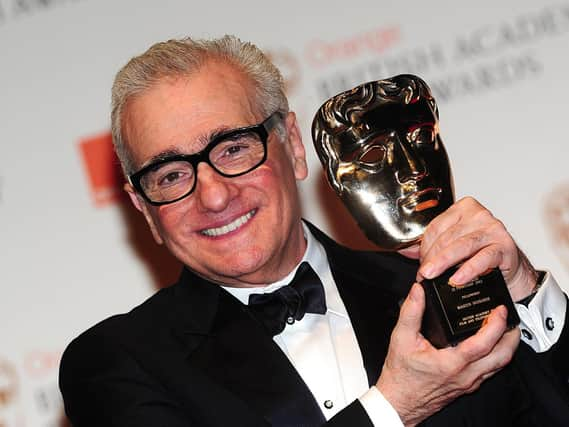Martin Scorsese is a film genius who has the right to criticise the modern media industry: Anthony Clavane


In short, he’s a genius.
And yet the nine-time Academy Award nominee has this week been taken to task for an essay, appearing in the latest issue of Harper’s Magazine, berating the modern movie industry for failing our culture.
Ostensibly, the think-piece is an ode to the Italian auteur Federico Fellini, director of such masterpieces as 8½ and La Dolce Vita. And Scorsese certainly waxes lyrical on the subject of his hero’s astonishing legacy.
Advertisement
Hide AdAdvertisement
Hide AdBut, after spending a short time celebrating Fellini’s life and times, he gets stuck into his favourite theme: namely that streaming services have devalued movies.
Having just binged two wonderful series, Better Call Saul and Succession – which were streamed on Netflix and NowTV respectively – I was a bit taken aback at first. Also hadn’t Marty’s 2019 crime epic The Irishman been released on Netflix to coincide with its cinematic launch?
Still, the bigger picture – excuse the pun – is what’s important here. For, according to the 78-year-old, “the art of cinema (is) being systematically devalued, sidelined, demeaned,
and reduced to its lowest common denominator, ‘content’. As recently as 15 years ago, the term ‘content’ was heard only when people were discussing the cinema on a serious level, and it was contrasted and measured against ‘form.’”
Advertisement
Hide AdAdvertisement
Hide AdScorsese has always been an artistically – rather than commercially – motivated director. And he’s always been controversial. In the 1970s and 80s he was one of the New Wave movie brats who turned cinema on its head, creating classics such as Mean Streets, Taxi Driver and Raging Bull.
They were criticised for their emotional and physical violence, but they changed the landscape of American cinema and influenced successive generations with their raw, gritty inventiveness.
Throughout his career, whether he was being labelled a heretic for The Last Temptation of Christ or being accused of betraying his Italian-American heritage in Goodfellas, he has always taken risks, never played safe and stayed true to his art.
So it is somewhat ironic that this latest controversy, the result of an essay in an intellectual New York monthly magazine, should be an overreaction to his defence of directors – like Fellini – who always take risks, never play safe and stay true to their art.
Advertisement
Hide AdAdvertisement
Hide Ad“In the movie business, which is now the mass visual entertainment business,” he writes, “value is always determined by the amount of money to be made from any given property.”
His particular bugbear is the reduction of all moving images, whether YouTube videos of cats, reality TV shows or David Lean epics, to the status of “algorithmic content”. This ugly buzz phrase has been used by film studios and streaming companies, he laments, to undermine his beloved art form.
As a result of this critique he has been demonised as an elitist, a snob, an embittered, things-aren’t-what-they-used-to-be fuddy-duddy who has failed to embrace, let alone understand, the digital era.
He might be the grand old man of cinema, but he is a busted flush, yesterday’s man. His early “mob flicks” are out of date. And they were a bit overrated anyway; no wonder he had to wait until he was 64 before picking up an Oscar.
Advertisement
Hide AdAdvertisement
Hide AdAs one disrespectful young critic tweeted: “I think he’s just an old dude who misses practical filmmaking’s heyday.”
Many other disrespectful young critics waded in, still smarting from Marty’s interview with Empire, two years ago, when he had a pop at their cherished Marvel superhero films. Much to their chagrin, he compared them to theme parks.
Look at it this way. When choosing your next film, which would you trust? The algorithmic calculations of a streaming service which has accessed data about your consumption
habits.
Or the reflections of a movie legend who has not only earned his place in the pantheon of great auteurs – but also his right to stick it to the modern media industry.